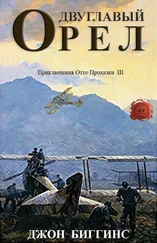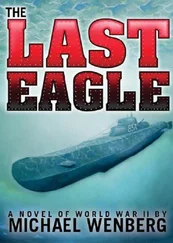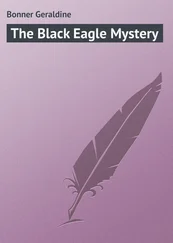While Hauptmann Kraliczek was thus engaged, rubbing out and correcting lines on his beautifully drawn charts, I was able to get an uninterrupted look at the man. And really, even if I have never been much addicted to what might be called the “male-model” view of military leader- ship—that an effective fighting man should necessarily look like a Viking chieftain or a Greek god—I have to say that he did seem a remarkably odd specimen to be running a front-line flying unit in the middle of a world war: a most unsoldierly-looking soldier. Not that he was deficient in military smartness: rather that there was too much of it. Although he was kitted out in the standard field-grey service tunic I noticed that this was immaculately brushed, and entirely free of the patches and darns that were increasingly widespread among front-officers now that we were approaching the third year of the war. I also observed that instead of the breeches and puttees which were de rigueur nowadays, he wore pre-war salonhosen of the General Staff pattern, dark grey with a double red stripe, impeccably pressed, and leather shoes rather than field-boots like the rest of us. As for the man inside this get-up, he had more the air of a rising deputy bank manager than of a military officer: pale, sleek and bespectacled, with neatly manicured little hands which looked far more accustomed to wielding a pen than a stick-grenade or a pair of wire cutters. I saw also, as he turned to face me, that although he wore the balloon-badge of the Fliegertruppe on his collar patches behind the captain’s three stars, he had neither the wings of a pilot nor those of an officer-observer. He brushed the eraser-crumbs carefully off his tunic before speaking.
“Well Prohaska, I have to welcome you to Fliegerkompagnie 19F. I think that you will find it, though but recently established, to be one of the more efficient air units of the Imperial and Royal Army. And I can assure you that it is my intention to make it the most efficient. Tell me, Prohaska, at what time did you arrive at Fliegerfeld Caprovizza?”
“Fifteen minutes past twelve or thereabouts, Herr Kommandant. My movement order said twelve p.m., but there was no lorry from Divacca so I had to borrow a motor cycle, and my orders instructed me to report first to Flik 19 at Haidenschaft . . .”
He pursed his lips in a curiously spinsterish expression of disapproval.
“Herr Linienschiffsleutnant,” he said quietly, as if I had just committed some unspeakable solecism, “I believe that I just heard you refer on two occasions to hours of the military day as ‘fifteen minutes past twelve’ and ‘twelve p.m.’ Such a slipshod method of denoting time may be acceptable in the k.u.k. Kriegsmarine, I cannot say; but I must ask you never to use it here. You must accustom yourself without delay to the clockwork precision with which the k.u.k. Armee conducts its affairs. The correct military formulations are ‘twelve hours fifteen’ and ‘twelve hours’ respectively and will be used at all times while you remain with this unit. Is that clear?” I replied that this was clear. “Very good: until further notice, and pending the arrival of your posting papers from Vienna, your duties with this unit will be those of an officer-observer.”
“Herr Kommandant, by your leave . . .”
“Yes, what is it?”
“Herr Kommandant, I obediently report that I am a qualified pilot and have been for nearly four years past. Given a little training in flying modern land-based aeroplanes I am quite capable of fulfilling the duties of an officer-pilot, and before he died Oberleutnant Rieger said that I ought to get some flying hours in on my own . . .”
He had turned even paler than usual as I said this. “Herr Linien- schiffsleutnant, pray contain yourself and reserve your helpful suggestions for when I ask you for them. Your substantive post here, I understand, is to be that of an officer-observer; so as far as I am concerned, until I receive further orders that is what you will do even though you should be the last qualified pilot left alive in the entire Dual Monarchy. Quite apart from anything else, to permit otherwise would be to make absolute nonsense of the manning establishments laid down for this calendar quarter by the Imperial and Royal War Ministry. Anyway, that is all that I have to say to you.” He sat down at his desk and took out a folder of foolscap sheets densely covered in figures, along with a pencil and ruler and pocket reckoner—a thing rather like a pepperpot where one twiddled knobs in the top and read off the figures in a little window at the side. He looked up. “Yes, have you anything more to say?”
I rummaged in the breast pocket of my jacket.
“I obediently report that before I departed from Fliegerkompagnie 19 this morning the Adjutant there gave me a present for you from Hauptmann Heyrowsky: a bicycle, to be precise. You will find it leaning against the back wall of this hut. He also gave me this message for you.” I handed him the envelope which had been tucked under the bicycle saddle, then saluted with as much irony as I could risk without ending up on a charge of insubordination. He took the envelope. I saw that his hands were trembling slightly.
“Er, was there any verbal message accompanying it, by any chance?” “I have the honour to report, Herr Kommandant, that there was; the gist of it as conveyed to me by the Adjutant was that Hauptmann Heyrowsky is prepared to teach you to ride the bicycle if you so desire.” He smiled nervously and slit open the envelope, then pulled out the sheet of paper inside. He swallowed hard as he read it, then looked at me with a sickly grin.
“Yes, yes, Prohaska, Hauptmann Heyrowsky and I are old comrades—always pulling one another’s legs; you mustn’t take what he says too seriously. He is a fairly capable officer even if he is lamentably lacking in military precision. We have a great deal of respect for one another, I can assure you. Anyway . . .” (he tore the letter up into minute scraps and dropped them into the waste-paper basket), “if you will excuse me I must get on with my returns. We are already into the last week of the month.” I saluted once more and turned to leave. “Oh, by the way, Prohaska.” “Herr Kommandant? ”
“I am assigning you to fly with Feldpilot-Zugsfuhrer Toth for the time being. I shall expect you to manage the man with a firm hand. He is totally lacking in discipline and respect for military order: to a degree in fact where I am considering whether a posting to the trenches or even a court martial may not soon be necessary. Aerial discipline is already lamentably lax in the k.u.k. Fliegertruppe and I shall make it my principal concern while I am in command of this unit to tighten it up. As far as I am concerned the fewer unruly degenerates like that we have in the Flying Service the better it will be for Austria.” With that he adjusted his spectacles and set to work on his papers, apparently blind to my departure.
I learnt over the next few weeks that, before the war, Hauptmann Kraliczek had once been one of the brightest rising stars of the Imperial and Royal General Staff. His tour of duty as an infantry Fahnrich had been lacklustre to say the least of it, marked only by a regrettable incident during the 1906 summer manoeuvres in Dalmatia, when he had fallen off his horse in front of the Archduke Franz Ferdinand and several thousand onlookers—then remounted with the wrong foot in the stirrup so that he ended up astride the beast facing its tail. But his career as a military administrator had been far more promising. After obtaining the highest marks ever recorded in the 1910 Staff College examinations at Wiener Neustadt he had been posted straight into the Military Rail Movements Directorate, the department of the War Ministry responsible for the Austro-Hungarian version of those vast, minutely detailed mobilisation plans by which the gigantic conscript armies of the European Powers would be moved to their appointed places in time of war. This was extremely exacting work in those days before the computer. In fact it used to be said, not entirely without truth, that the best brains from the Staff College went into the Eisenbahntruppe and ended up in padded cells before they were forty.
Читать дальше












